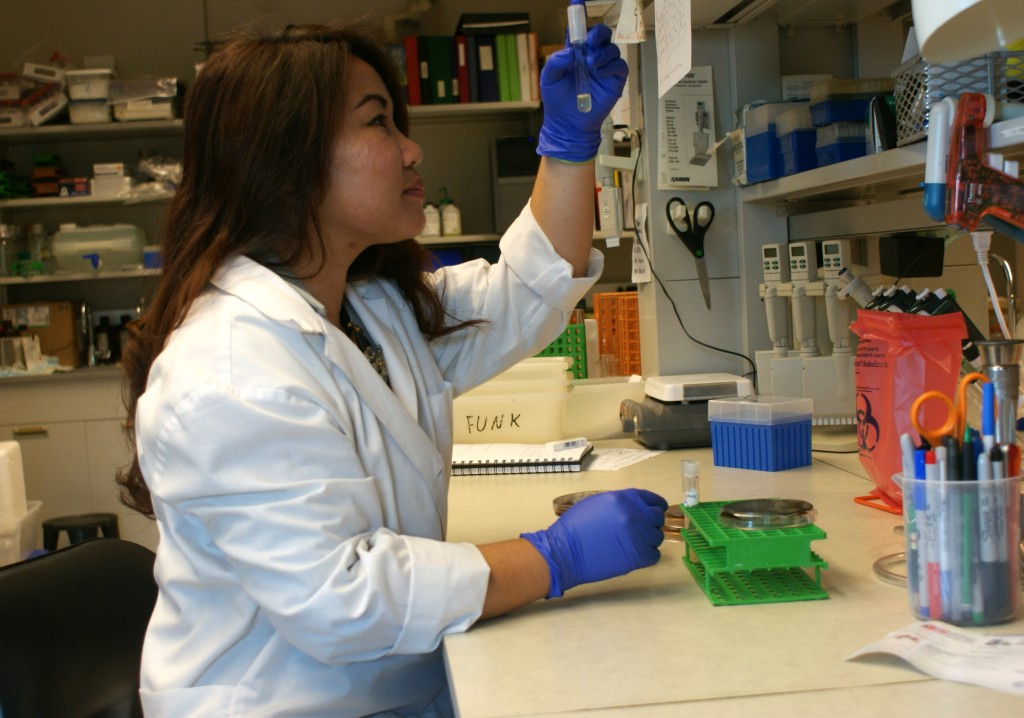Raw pet food has a growing consumer base, says Paulynne Bellen, third-year veterinary student at The Ohio State University College of Veterinary Medicine, but the food may not come without health risks.
One concern is that raw pet food can sometimes carry a bacterium called Listeria monocytogenes, among other foodborne bacteria, since it does not go through the cooking and steaming processes that dry pet food does.
If ingested, L. monocytogenes can cause more extreme symptoms than E. coli, such as infection, fever, gastrointestinal problems and sometimes death. The bacterium can survive in low temperatures and in the presence or absence of oxygen, which is how it likely gets into some raw pet food. L. monocytogenes poses a much higher risk for animals (including humans) that are immunocompromised.
Bellen and Dr. Thomas Wittum, research mentor, professor and interim chair of the Department of Veterinary Preventive Medicine at Ohio State, are testing 120 raw pet food samples for the presence of L. monocytogenes, E. coli and Salmonella. They are comparing the levels of foodborne pathogens found in each sample to the four standard processing methods used in raw pet food production: freeze drying, high-pressure pasteurization, raw freezing and dehydration.

Paulynne Bellen, third-year veterinary student at The Ohio State College of Veterinary Medicine, analyzes a sample of raw pet food for foodborne pathogens as part of a study funded by the college’s Veterinary Scholar Summer Research Program
This does not mean that all raw food is unsafe for pets to eat or without its benefits, and some veterinarians regularly recommend it, Bellen said.
“As a scientist, you can’t be swayed either way without the facts,” she said. “We just want to determine if one processing method is better at keeping bacteria out than the others, which would allow us to guide pet owners toward the safest kinds of raw food.”
The FDA has issued recalls on several major raw pet food brands and companies in recent years, including three in 2015, brand names Primal, OC Raw Dog and Vital Essentials .
Bellen said that the study has improved her skills in the lab and in responding objectively to a controversial issue. The team expects to see several food samples test positive for foodborne bacteria, Wittum said.
Comments are closed